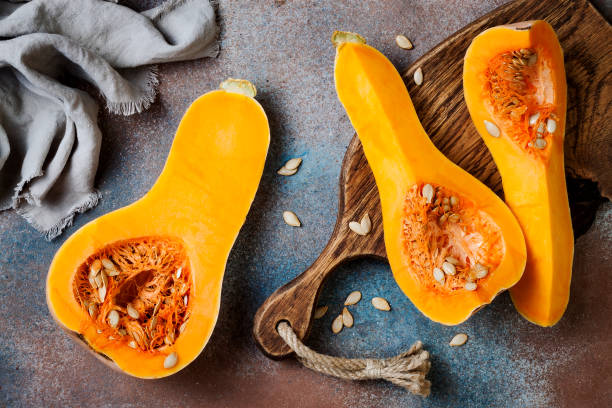Can you freeze butternut squash? Fresh butternut squash is typically enjoyed in the fall months, but you can freeze it year-round. Read on to find out more.
Fresh butternut squash is typically enjoyed most during the fall months, as harvesting typically occurs in late summer and early fall.
However, you can enjoy this delicate fruit, or as some call a vegetable, any time of the year simply by freezing a large harvest to enjoy later in the year when you are craving something sweet and savory that provides comfort and comfort to the body provides food.
How do you freeze butternut squash?
Freezing butternut squash is easy. You can also freeze the squash using a few different methods. Below is a step-by-step guide on how to freeze butternut squash:
Freezing Raw Butternut Squash
If you want to freeze freshly harvested butternut squash in its organic form, you must first remove the stem, skin, and seeds from inside the squash. Then you can shred the pumpkin flesh into bite-sized pieces.
After that, place the pieces on a cookie sheet lined with wax paper and freeze them in the freezer for about an hour. Once the pieces are frozen, you can place them in sealable freezer bags or containers and store them in the freezer for up to a year.
When you’re ready to cook a squash, simply take the container out of the freezer and cook the squash the way you wish.
Read Also: Can you freeze fruit?
Freezing mashed butternut squash
One of the most popular ways to eat butternut squash is to mash it with a little butter and brown sugar. Some people even add maple syrup and a pinch of salt for a sweet and savory side dish.
You can create any flavor of pumpkin puree you want. To make butternut squash puree, simply remove the stems, skins, and seeds of some squash. The pumpkin flesh is chopped into bite-sized pieces.
Place the pieces in a large steamer or shallow pot of water and cook until cooked. Next, strain the water from the butternut squash chunks and place the chunks in a large mixing bowl with your favorite seasonings.
Then whisk the ingredients together until you have a smooth and creamy deeply mashed butternut squash dish that’s packed with great flavor. Next, scoop the mashed butternut squash into freezer containers, place the date on the container, and freeze the squash that way for up to a year or until ready to use.
When you’re ready to use up a side of mashed butternut squash, take a container from the freezer, tip the frozen squash peel into a small saucepan and heat over low heat until warm and creamy, ready to eat. You can also reheat this dish in the microwave, but the taste and texture may change slightly.
Freezing Halved Butternut Squash
If you want to freeze a butternut squash in halves, all you have to do is cut one squash in half, scoop out the seeds, and place each half in a freezer bag.
Then freeze the squash this way for up to 2 years or until ready to use. The best way to cook frozen butternut squash halves is to roast them in the oven at 400 degrees for about an hour or until tender.
You can add spices and butter to the halves for any flavor you desire as well. Some people even stuff the halves with wild rice, nuts, and dried fruit for a delicious vegetarian meal. You do what you like best for your frozen butternut squash halves.
How do you thaw frozen butternut squash?
It would not be advisable to take frozen butternut squash out of the freezer and let it thaw in the fridge or on the countertop as it will cause discoloration and possibly even a slimy, mushy texture.
It’s always best to take frozen butternut squash out of the freezer and cook it right away so it still tastes the same fresh as the day it was harvested.
Pumpkins left frozen for more than 2 years can cause frost and even alter the flavor so it’s always best to use up frozen squash before the 2 year mark is over.
summary
Freezing butternut squash is easy and convenient, especially when it comes to making quick meals. Now that you know how to freeze butternut squash, you no longer need to worry about wasting it when storing this nutritious vegetable for future use. You can reap the benefits of selling because you get the most out of the veggies!
